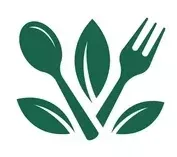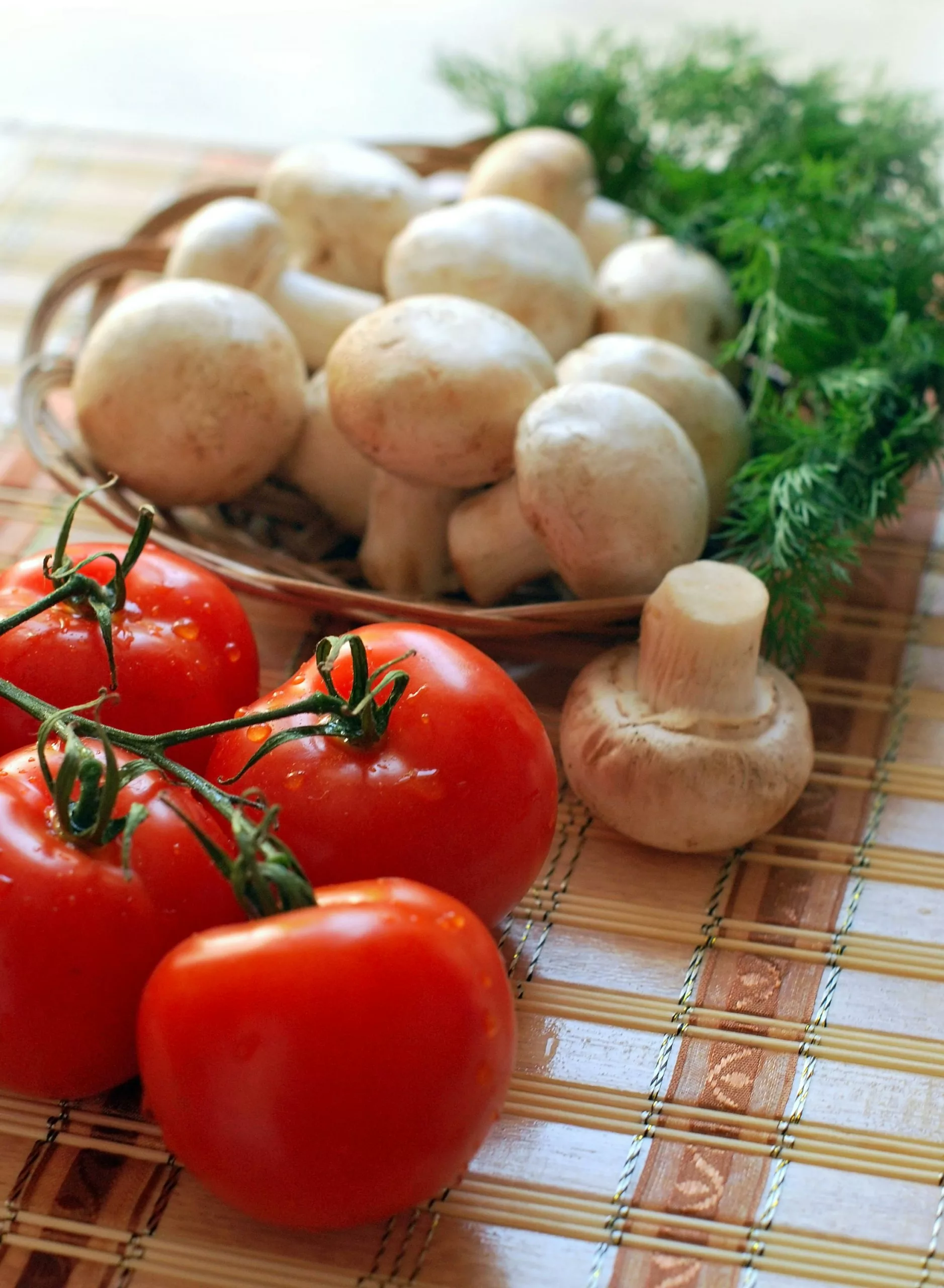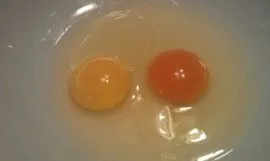Notice the eggs in the picture above? See how much deeper in color the yolk of the egg to the right is as opposed to the pale yellow color yolk of the egg on the left? Which do you think is more nutrient dense?
Protein is an essential building block in the human body. It’s an essential nutrient toward the building and maintenance of tissues and cells in the body.
Protein is found in many sources, including plant sources. However, it’s only the animal sources like meat and eggs that offer all the complete proteins by providing all of the eight essential amino acids.
Eggs, as well as meats and poultry are very healthy protein sources, but this does NOT include the meat from animals raised on factory farms..CAFO’s (Concentrated Animal Feeding Operations).
Eggs, as well as the chickens they come from, are both healthful sources of protein but ONLY if raised the way nature intended. Nature intends for chickens to roam free and romp around in the grass, eating not only grass, but also slugs, worms and other insects. Yet, you see the eggs in the supermarket where they proudly claim that the eggs are from chickens raised on a strictly vegetarian diet. Who needs a chicken raised on a vegetarian diet? It’s NOT their natural diet. Same as grains for a cow. Cows were meant to graze in pasture, not be cooped up in a barn munching on grains.
So, what’s it going to be? Pasture Raised Eggs, Cage-Free or Free-Range?
Most of us health conscious consumers know enough to search for terms on the package such as “organic,” “free range,” “cage-free,” and “pastured.” These terms may seem to all mean the same thing and seem to be interchangeable. But in reality, they are not interchangeable. These are just fancy advertising terms used to attract us to purchase their eggs.
When you see the term “free-range” you immediately picture chickens roaming free outside in the fresh air grazing in the pasture. Sadly, however, that is far from the case. Commercial egg producers can run a facility where the hens are not in cages, but are still confined indoors with limited space. The egg producers still get to call them “free-range” eggs. The term “free-range” is vague and doesn’t specify the amount of time hens must spend outdoors or how much space each hen needs to have outdoors. It also doesn’t indicate that the hens are consuming a pasture diet.
As I mentioned above, true “free-range” eggs come from hens who are free to roam outdoors in pasture where they can forage and enjoy their natural diet, which includes grass, seeds, green plants, worms and insects. Since conventional factory farms have adopted the term “free-range” as a fancy advertising ploy, the term “Pasture-raised” is used to describe eggs that come from chickens who are indeed free to roam in pasture and forage for their natural diet. Therefore, pastured eggs is the key.
Large commercial egg facilities typically house tens of thousands of hens and can even go up to hundreds of thousands of hens. Obviously they cannot allow all of them to forage freely. They can still be called “cage-free” or “free-range” though, if they’re not confined to an individual cage. But these labels say nothing about the conditions they ARE raised in, which are still deplorable.
So, while flimsy definitions of “free range” and “cage-free” allow such facilities to sell their products as free range, please beware that a hen that is let outside into a barren lot for mere minutes a day, and is fed a diet of corn, soy, cottonseed meals and synthetic additives is NOT a free-range hen, and simply will not produce the same quality eggs as its foraging counterpart. There’s also the issue of veterinary drug contamination.
Basically, what you’re really looking for are chickens and eggs that are both certified organic AND truly pasture-raised. Organic certification is quite costly for many farmers and comes with tons of paperwork as well. Of course, that cost will be passed down to you and you’ll pay a much higher price. It would be worth your while and cost effective if you could just make sure the farmer raises his chickens according to organic, free-range standards, allowing his flock to forage freely for their natural diet, and aren’t fed antibiotics, corn and soy. There are many small farmers who aren’t technically certified organic, but do follow organic practices. The local farmer where I get grass fed raw milk, cream and cheese, also has pasture raised eggs. He is not certified organic, but I know he doesn’t use any pesticides or herbicides, anti biotics, or growth hormones. We’ve become friends with him and his family.
Superior Nutrition
Testing reveals that true free-range pasture raised eggs are far superior nutritionally than commercially produced eggs. The dramatic differences in nutrition are probably due to the differences in diet between free range, pastured hens and commercially farmed hens.
Pastured eggs contain:
2/3 more Vitamin A
3 times more Vitamin E
2 times more omega-3 fatty acids,
and 7 times more beta carotene than U.S. Dept. of Agriculture nutrient data for commercial eggs.
How to Find High Quality Pasture Raised Eggs
Obviously, NOT the supermarket! My suggestion is to get to know your local farmer. Go around and ask local farmers about how they raise their chickens. Just by looking around and seeing chickens being free to roam in the pasture will give you a clue. Many farmers will be honored to show you around and answer all your questions. They pride themselves on their work and the way they care for their animals. If you’re a city dweller and the closest farm is too far, then your best bet is your local health food store. They usually have pastured organic eggs.
A tell tale sign that you’re getting pasture raised eggs is the color of the yolk. Note my picture above. Notice the dark orange colored yolk of the egg on the right. That dark orange color is indicative of a pasture raised egg. The pale yellow yolk on the left is a commercially produced store bought egg.
In closing, let me add that although the pastured eggs come at a higher price, they are well worth the investment nutritionally. Either invest in healthy foods now, or invest in doctor bills later.
The choice is yours.




